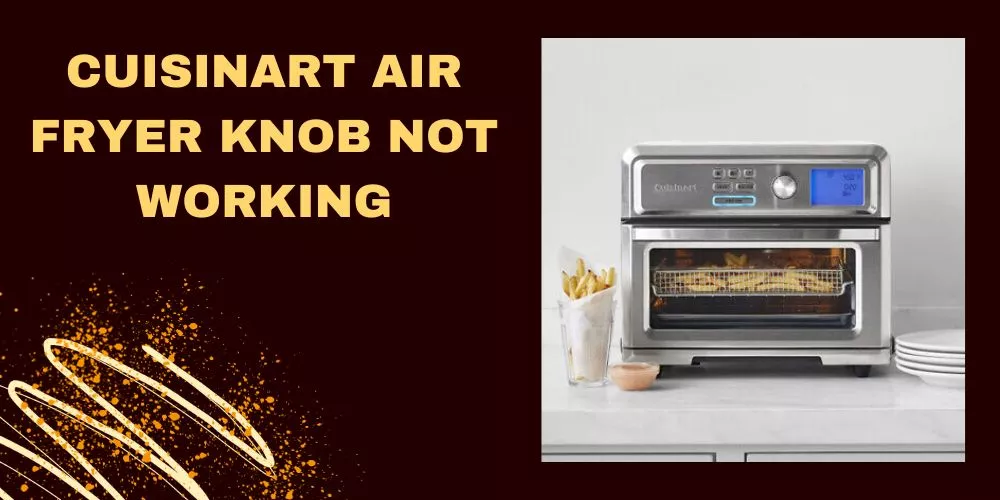In recent years, air fryers have become a staple in kitchens around the globe, promising a healthier alternative to traditional frying methods. Among these, Cosori Air Fryers have gained substantial attention for their efficiency and user-friendly design.
However, concerns regarding the potential toxicity of materials used in air fryers have emerged, prompting consumers to question the safety of these devices.
So, is Cosori air fryer toxic?
This article aims to explore the safety of Cosori Air Fryers, examining the materials and manufacturing processes involved to assess whether they pose any health risks.

Through a careful analysis, we seek to provide a well-informed perspective on the topic.
Is Cosori Air Fryer Toxic?
Cosori Air Fryers, like many other brands on the market, are designed with consumer safety in mind and adhere to strict manufacturing standards.
Cosori Air Fryers are typically made from food-grade materials that are free from harmful chemicals such as BPA (Bisphenol A) and PFOA (Perfluorooctanoic Acid), which are known to pose health risks.
Moreover, reputable manufacturers conduct rigorous testing to ensure their products meet or exceed safety regulations. While there have been general concerns about air fryers releasing toxic compounds at high temperatures, it is crucial to note that if used according to the manufacturer’s instructions, the risk associated with Cosori Air Fryers is minimal.
Ensuring the appliance is clean and well-maintained further mitigates potential hazards. Therefore, based on current evidence and standards, Cosori Air Fryers are not considered toxic when used appropriately. The safety standards and certifications for kitchen appliances like air fryers are critical to ensure that these products are safe for routine use.
Various regulatory bodies set these standards to protect consumers from electrical hazards, chemical exposures, and other risks. Here are some key certifications and standards that pertain to kitchen appliances, including air fryers:
Underwriters Laboratories (UL) Certification

Underwriters Laboratories is a globally recognized safety consulting and certification company. When an air fryer has a UL mark, it means the appliance meets UL’s rigorous testing for electrical safety, such as risks of electric shock and fire. UL often tests for structural integrity of the appliance and safe electrical design.
ETL Listed Mark
The ETL Listed Mark, provided by Intertek, indicates that the product has been tested and meets the applicable North American safety standards. The testing covers similar aspects as UL certification, encompassing product safety related to electrical systems and overall product operation.
FDA Approval for Food Contact Materials
The U.S. Food and Drug Administration (FDA) oversees the safety of food contact materials used in kitchen appliances. For air fryers, this pertains especially to the materials in direct contact with food, such as the basket coatings.

If these materials release substances when heated, they must be shown to be safe under conditions of intended use before they can be FDA approved.
CE Marking
In Europe, the CE mark demonstrates that the appliance meets EU safety, health, and environmental protection requirements. While primarily seen in European countries, this mark is globally recognized.
European Food Safety Authority (EFSA)
Another important regulatory body for European markets. EFSA evaluates the safety of materials intended to come into contact with food and provides scientific advice and communication on existing and emerging risks.
NSF Certification
NSF International is a public health and safety organization that certifies products to ensure they meet strict standards for public health protection. An NSF certification focuses on sanitation standards, ensuring that the product doesn’t harbor bacteria and is easy to clean.
RoHS Compliance
The Restriction of Hazardous Substances Directive limits the use of certain dangerous substances (like lead and mercury) in electrical and electronic products. While not a certification, compliance with RoHS is mandatory for selling products in the EU and influences manufacturing practices globally.
FCC Mark
For air fryers that have digital components or emit radio frequencies, such as a smart air fryer using Wi-Fi or Bluetooth, the Federal Communications Commission (FCC) mark indicates compliance with the electromagnetic interference limits set by the FCC.
Manufacturers must ensure their products comply with the standards relevant to their market. For many companies, compliance is an ongoing process that requires constant vigilance, regular testing, and updates in manufacturing processes as standards evolve.
Consumers should be aware of these certifications and look for them when purchasing kitchen appliances. These standards and certifications provide the peace of mind that the products have been tested and assessed by objective third-party organizations for safety and compliance with current regulations.
Which air fryer doesn’t have forever chemicals?
To assist with your search, here are a few examples of air fryers that are reputed to be free from forever chemicals:

- Philips Airfryer, Avance Turbo Star: This model includes a basket with a non-stick mesh that is free from PFOA and PFAS. The basket can be easily cleaned and is dishwasher-safe, reducing the potential for food buildup that can release harmful compounds when heated.
- T-fal Actifry Air Fryer: T-fal’s air fryer is equipped with a ceramic-coated, non-stick pan, eliminating the usage of PFOA and PFAS. It incorporates patented heat pulse technology for healthier and safer cooking.
- GoWISE USA 8-in-1 Digital Air Fryer: GoWISE USA’s model comes with a PFOA-free, non-stick pan and detachable basket to ensure ease of use and safe cooking practices.
- Breville Smart Oven Air Fryer: This high-end model uses stainless steel racks instead of a conventional coated basket. Stainless steel, apart from providing durability, offers a non-reactive cooking surface free from PFOA and PFAS.
- Ninja Foodi Digital Air Fry Oven: This is another high-end model with a stainless steel construction which ensures that food comes into contact with non-reactive surfaces.
Remember, because manufacturing practices can change, it is recommended that you research and check the current product specifications before making any purchase. These details are usually readily available on the manufacturer’s website or by contacting their customer service.
Conclusion:
In conclusion, concerns around the toxicity of kitchen appliances, including the Cosori Air Fryer, have led to a vigilant review of their safety standards and material composition.
The Cosori Air Fryer, adhering to stringent certifications such as UL, FDA approval for food contact materials, and compliance with RoHS, assures users of its safety and non-toxicity.
While the broader debate around non-stick coatings and their health implications continues, current evidence and compliance with regulatory standards suggest that the Cosori Air Fryer is a safe, non-toxic option for those looking to enjoy the benefits of air frying without compromising on health.


